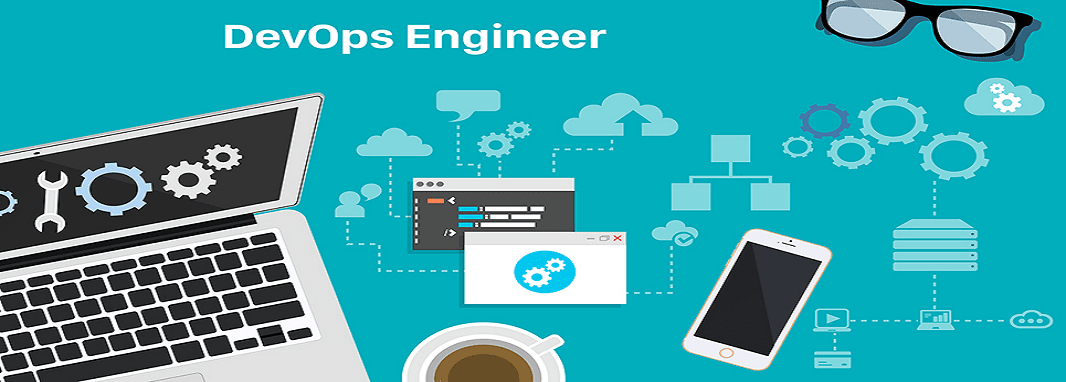When it comes to DevOps, many don't know where to begin.
If you are trying to get a better handle on what DevOps is and where to find this hot commodity, this piece can be an easy win.
Need comprehensive and cost-effective DevOps services? Our DevOps experts will provide the solutions tailored to your needs.
Who is DevOps?
DevOps is no way a technology. It's a culture, a trend, a philosophy that changes the wind of IT. DevOps focuses mainly on the mindset and cultural shift in how organizations approach the process of shipping code.
According to the survey of 1,600 people,43% of respondent organizations apply DevOps for one or multiple projects, 19% are implementing DevOps across their business, and 15% plan to incorporate DevOps within the next year or are in the initial stages now.
The term "DevOps" was formed by linking the words "development" and "operations" and implying a cultural shift that bridges the gap between development and operation teams, which used to work separately.
Using a set of practices to automate and integrate the processes between software development and IT teams, DevOps can build, test, and release software faster and more reliably.
So, a DevOps engineer is a person who joins the software development with the deployment phase. Rather than a separate occupation, DevOps can be a position in which a person should have specific competencies.
Put simply, this is a developer with administrative skills, or vice versa - a system administrator with programming experiences. If you want to create customer value rather than just moving bits and bytes, hiring DevOps Engineers who use the latest cloud computing and software development automation technologies is the right path. This way, businesses save time and enhance product quality.
DevOps Responsibilities
True DevOps understand the work of cloud services (AWS/GCP/Azure), in-depth knowledge of developing continuous integration pipelines and continuous CI/CD delivery, and work with containers and orchestration (Docker and Kubernetes k8s, and of course knowledge of scripting languages.
As a rule, DevOps engineers are responsible for:
- Planning applications and their infrastructure, development, code collection, and subsequent testing. Also, the DevOps can be a link in the development team. So, this role presupposes even managing a team to some extent.
- DevOps engineers are responsible for building and maintaining CI/CD pipelines. They ensure that all processes, people, and tools work synchronously. DevOps engineers can spot areas of growth and optimize the pipeline on the go. When engineers do the job well, the team can continuously test without hampering overall speed. Thus, more time is dedicated to value-creating work - developers don't have to waste their time waiting for machine configuration or code integration.
- Automation of the development process. This is perhaps the most important reason why companies generally need DevOps. They automate repetitive development processes, know where and what to add, how many servers, and what hardware is required for a specific task. DevOps boost the efficiency of both engineering and IT. Meantime, companies can focus on more strategic tasks.
- Monitor and ensure development security. DevOps engineers monitor their apps and infrastructure to identify and oversee the blind spots, observe them, and troubleshoot possible issues. Gathering data and understanding how to act on it adequately is crucial for every business. DevOps engineer's job is to support the users of the infrastructure they develop. The best way to ensure safety is to build reliable software. Writing secure code that will be protecting the cloud against hackers and viruses is a relevant skill for a DevOps engineer.
Lastly, DevOps and cloud computing are inseparable as cloud offers automated provisioning and scaling to support application changes. To increase agility, improve security, reduce costs for the product businesses leverage applications on Amazon Web Services. An AWS Certified Solutions Architect can ensure that your business makes the best use of the cloud at every stage of their journey.
Where to Find DevOps?
In getting competent technical people there are two ways to go: hire Freelancers or hire DevOps Engineers through IT companies.
In every case, there are pros and cons.
Freelancer platforms like Upwork, Freelancer.com work pretty much the same: you set up an account, create a job posting, choose a freelancer (or a team of freelancers), and start a contract. As a result, you get lower rates, a large selection of specialists, and customer reviews.
There is also a negative side - no guarantees, extended periods, language barriers, no complicated and long projects. Thus, freelance platforms are suitable for small and quick tasks.
Hiring DevOps Engineers is less expensive than hiring in-house employees, but just as reliable. All you need is to share the details of your project and cooperate along the process. IT companies' teams are experienced in handling large and complex projects. They give implementation guarantees, a dedicated project manager, high price-quality ratio. In IT companies, you can hire a development team and a separate specialist for small projects. This is the perfect choice for saving time and money.
Need comprehensive and cost-effective DevOps services? Our DevOps experts will provide the solutions tailored to your needs.






